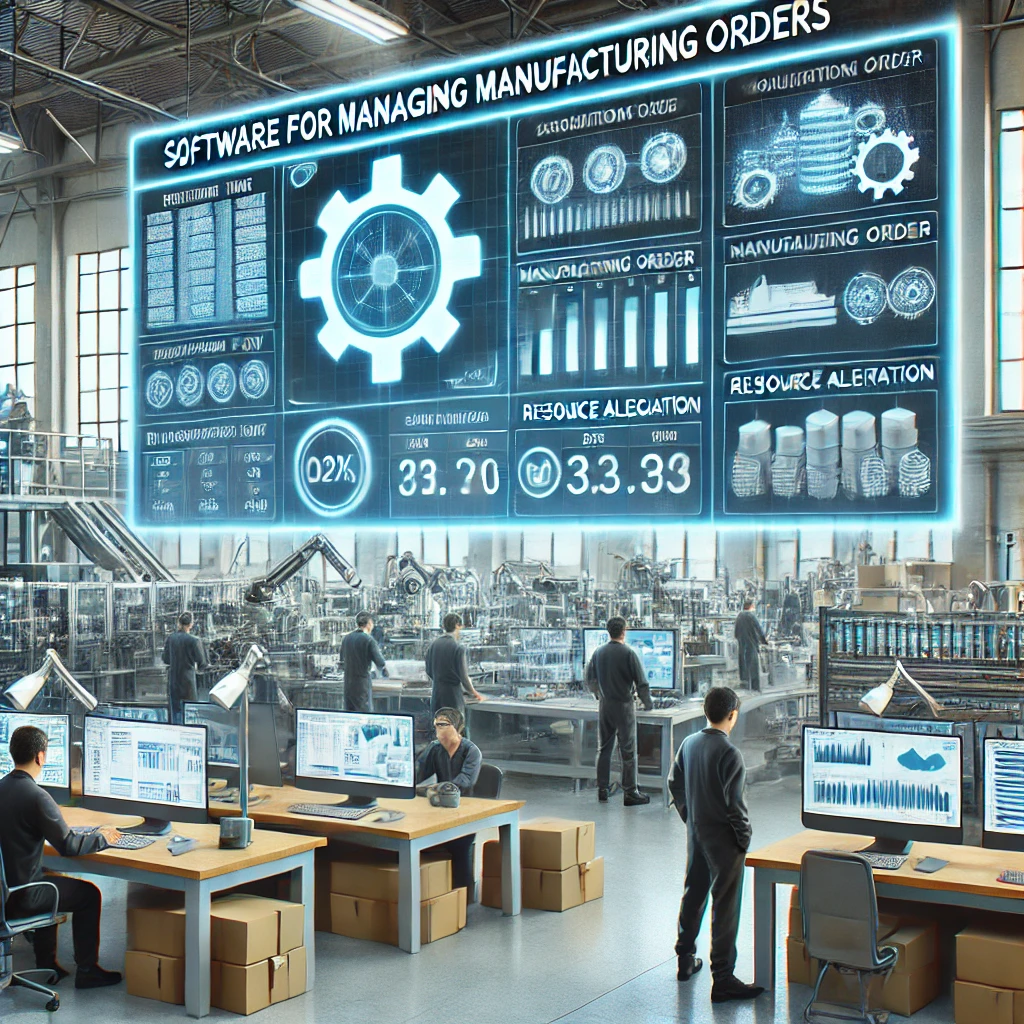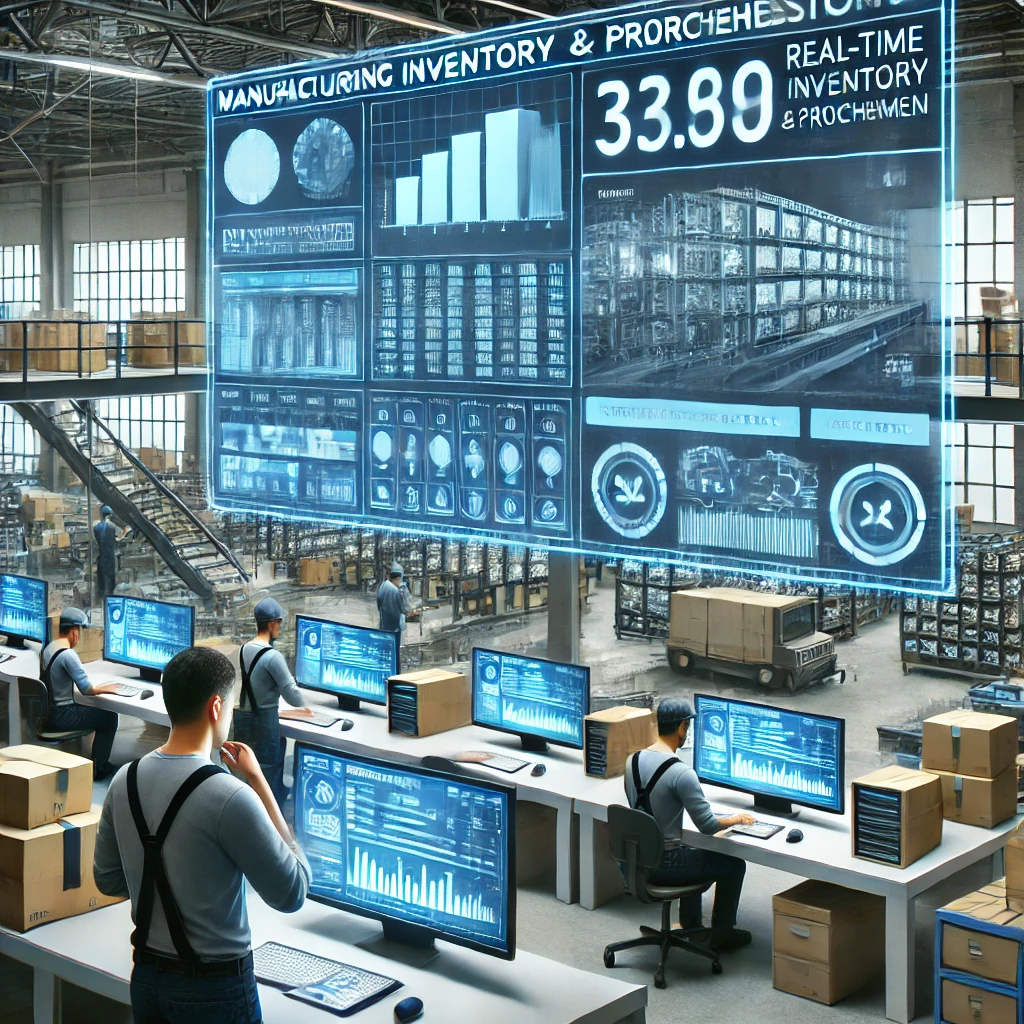In the highly competitive world of manufacturing, efficiency is key to success. Delays, errors, and inefficiencies can result in costly setbacks. This is where Manufacturing Workflow Automation steps in. By automating repetitive tasks, streamlining processes, and improving communication across departments, manufacturers can boost productivity, reduce human error, and increase profitability.
In this article, we’ll explore what Manufacturing Workflow Automation means, how it works, and why it’s a game-changer for manufacturers looking to stay ahead in the industry.

What is Manufacturing Workflow Automation?
Manufacturing Workflow Automation is the use of software and technology to automate various processes and tasks involved in production. It eliminates the need for manual intervention in repetitive or routine tasks, enabling manufacturers to streamline their workflows, improve accuracy, and increase overall efficiency.
Automation can be applied to a wide range of manufacturing processes, including:
- Production scheduling
- Inventory management
- Quality control
- Order processing
- Machine operation and monitoring
By integrating automated workflows, manufacturers can ensure that every part of the production cycle runs smoothly, with minimal human intervention, while focusing their workforce on higher-value tasks.
Why is Manufacturing Workflow Automation Important?
Automation is not just a buzzword—it’s a necessity for manufacturers looking to improve efficiency, reduce costs, and maintain a competitive edge. Here’s why Manufacturing Workflow Automation is so crucial:
1. Increased Efficiency
Automating repetitive tasks like data entry, inventory checks, or production scheduling frees up valuable time for employees to focus on more critical aspects of the business. This boosts overall efficiency and reduces the risk of delays.
2. Reduced Human Error
Manual processes are often prone to errors, especially when it comes to repetitive tasks. By automating these processes, manufacturers can significantly reduce human error, ensuring more consistent and accurate results across the production line.
3. Improved Resource Allocation
Automation ensures that resources, including labor, materials, and machinery, are used more effectively. By optimizing workflows, manufacturers can allocate resources more efficiently, reduce waste, and maximize output.
4. Real-Time Data and Insights
Manufacturing Workflow Automation allows manufacturers to gather real-time data on production processes, machine performance, and inventory levels. This data provides valuable insights, enabling manufacturers to make informed decisions quickly.
At Syncratech, we provide custom ERP solutions with advanced workflow automation features, designed to help manufacturers optimize their production processes and improve efficiency. Visit our homepage to learn more about how we can assist you.
Key Features of Manufacturing Workflow Automation
When looking to implement Manufacturing Workflow Automation, it’s essential to understand the features that will deliver the most value to your business:
1. Automated Task Scheduling
With automated scheduling, manufacturers can plan production runs, allocate resources, and ensure that tasks are completed on time. The system automatically adjusts schedules based on real-time data, optimizing production workflows.
2. Inventory Automation
From tracking stock levels to triggering automatic reorders, workflow automation can revolutionize inventory management. Manufacturers can avoid stockouts and overstocking by automating the entire inventory tracking process.
3. Real-Time Machine Monitoring
Automation software can monitor machines in real-time, providing updates on performance, potential issues, and maintenance needs. This reduces downtime by alerting managers before a machine fails.
4. Quality Control Automation
By integrating quality control checkpoints throughout the production process, manufacturers can ensure that products meet quality standards before they move to the next stage of production, reducing the risk of defective products reaching the market.
5. Order Processing Automation
From receiving orders to shipping finished products, workflow automation ensures that the entire order management process is streamlined, reducing delays and improving customer satisfaction.
How Syncratech’s Manufacturing Workflow Automation Can Transform Your Business
At Syncratech, we understand that every manufacturing business has unique challenges. That’s why our ERP solutions are built to offer flexible and customizable workflow automation tools that streamline your production processes, improve efficiency, and reduce costs.
With our solution, you can:
- Automate repetitive tasks across the production line.
- Monitor real-time data to ensure that machines and processes are running smoothly.
- Reduce waste and errors by optimizing resource allocation.
- Improve communication between departments for more efficient workflows.
Our tailored solutions ensure that your business is running at its highest potential. Visit our homepage to learn more.
Benefits of Manufacturing Workflow Automation
Implementing Manufacturing Workflow Automation offers a host of benefits that can have a significant impact on your business. Here are just a few of the advantages:
1. Faster Production Times
By automating tasks and streamlining workflows, manufacturers can significantly reduce production times, enabling faster turnaround for orders and more efficient use of resources.
2. Cost Savings
Automation reduces labor costs by eliminating manual tasks and improving resource utilization. Manufacturers can also reduce errors and waste, leading to greater cost savings across the board.
3. Scalability
As your business grows, workflow automation makes it easier to scale operations without a corresponding increase in labor or resources. Automated systems can handle increased demand without the need for additional staff.
4. Enhanced Flexibility
In today’s fast-paced market, the ability to adapt quickly is critical. Manufacturing Workflow Automation allows manufacturers to adjust workflows, scale production, or shift resources based on real-time data, ensuring that operations remain flexible and responsive to changing demands.
FAQs About Manufacturing Workflow Automation
1. What processes can be automated in manufacturing?
Many processes can be automated, including production scheduling, inventory management, quality control, and order processing. Automation can also be applied to machine monitoring and maintenance, reducing downtime and improving efficiency.
2. How does Manufacturing Workflow Automation improve efficiency?
By automating repetitive and time-consuming tasks, manufacturers can streamline their workflows, reduce errors, and ensure that resources are used more effectively. This leads to faster production times and lower operational costs.
3. Is Manufacturing Workflow Automation suitable for small manufacturers?
Yes, small manufacturers can benefit greatly from workflow automation. Even small-scale automation can lead to significant improvements in efficiency, cost savings, and production times, helping smaller businesses stay competitive.
4. How can ERP software help with Manufacturing Workflow Automation?
ERP software integrates all aspects of a business, from production to inventory management, into one cohesive system. Workflow automation features within ERP systems ensure that these processes work together seamlessly, improving overall efficiency and reducing manual tasks.
Final Thoughts
In today’s rapidly evolving manufacturing landscape, businesses need to embrace technology to stay competitive. Manufacturing Workflow Automation is one of the most effective ways to streamline operations, reduce costs, and increase productivity.
At Syncratech, we offer custom ERP solutions designed to help manufacturers automate workflows and improve efficiency. If you’re ready to take your manufacturing processes to the next level, visit our homepage and discover how we can help.



